
I still remember the rush of the first time. It was 2003 or maybe 2004. Babe Ruth's curse still hung over the Red Sox, Peter Jackson was still beloved, and parents were busy confiscating Eminem CDs instead of attending his concerts.
I'd heard about this show called
LOST. I'd heard it was amazing, so intense and mysterious that it dominated a large part of the mental bandwidth of its viewers even when they weren't watching it. I'd heard that message boards as deep and complex as a rabbit warren had sprung up all over the internet, all devoted to solving the mysteries of the black smoke and Christian Shepard and 4-8-15-16-23-42. And when I say I'd heard, I mean that I had actually heard a person talk endlessly about it. Social media was more or less nonexistent (unless you count MySpace, and please don't count MySpace), and word-of-mouth actually happened via mouths.
The second season had just started airing, and I was behind. TiVo was around, but I didn't have one, and so my only hope was to rent or buy the first season on DVD, then catch up on the handful of Season 2 episodes I had missed by... I want to say hooking up an iPod with the episodes downloaded onto it into my TV using A/V cables, but that can't be right, can it? I honestly can't remember. And yes, I know it sounds as if I'm describing life before the printing press. Just bear with me.
And so one night I sat down with the DVDs, and I watched the pilot episode. So begins the story of nearly every person who has binge-watched an awesome TV series before or since (changing out "DVDs" for "Netflix" or "Pirated Korean Broadcast" or "My Friend's HBO GO Account" at some point along the way). The rest is obsessive, sleep-deprived history.
Binge-watching was
awesome. All that exciting TV, none of the awful wait time. The days of languishing in miserable anticipation, waiting for those 167 hours to pass, were over. I didn't have to build my life around the TV schedule or be bummed out when I missed an episode of a favorite show. It was revelatory.
Now, of course, it's as normal as can be. I know people who intentionally wait for shows to end - not just seasons, but entire series - before watching episode 1. Why bother when you can wait a while, blissfully unaware of what you're missing, letting the show undergo the test of time, and then shotgunning it like a fresh pledge takes down a dozen Natty Lights during Rush Week?
So it was with me for years.
The Wire,
The Sopranos,
The West Wing, early seasons of
Breaking Bad and
Mad Men, all watched free from the fetters of traditional programming schedules.
But eventually, the magic wore off.
What happened was that a couple of the shows I became really interested in (
Breaking Bad and
Mad Men) became too big a part of the cultural conversation for me to wait on, and after bingeing on each show's first couple of seasons, I was all caught up, and I had a decision to make: do I want to let the shows finish up their runs and catch up all at once but have to leave the room (and stay off the websites, Facebook, and Twitter) every time somebody brings them up in the meantime, or do I want to agonize over being forced to play the weekly waiting game.
I chose the latter, and I don't regret it at all.
Sure, the initial pangs of regret took a while to abate. Seeing the credits role and realizing that another episode wasn't waiting in the queue was a drag.
Until suddenly, it wasn't. Yes, sacrificing the binge cost me some control and some immediate satisfaction, but it gave me back something I didn't even know I was missing, something that, since discovering binge-watching, I assumed had been the source of all my TV-related unhappiness: anticipation.
At the risk of sounding like an old fogey (for what it's worth, I'm 29 going on 61, so maybe I just
am an old fogey), not getting what I wanted the moment I wanted it actually turned out to be kind of great. Let me explain: being invested in something for a long time, if that thing is any good, is inherently rewarding. Sports are probably the greatest example of this. Winning a title or foiling a rival or signing a great player feels good in part because it's a return on the time, energy, hope, and worry that we've poured into our favorite teams over the years. TV shows (and bands, and film series, and authors) work the same way. Being forced to watch a series slowly, to endure the good ol' fashioned not-knowing - about character arcs, plot points, and unsolved mysteries - gives me more time to stew, to wonder, to pontificate, and to discuss, all stuff that makes the experience richer. The waiting actually makes the having better.
I spent my time as a live viewer of
Breaking Bad and
Mad Men grumbling about cliffhangers and unresolved storylines and what-ifs and a hundred other things from Monday through Saturday, but as Sunday nights crept closer, I never failed to feel that kid-on-Christmas-Eve buzz building inside my head. Every episode felt like a gift, a treat that I would savor all the more for knowing that I wouldn't get another for seven days.
I know this all sounds mildly like a parent convincing a child to eat her vegetables because one day she'll appreciate the nutritional benefits, or worse, like binge-shaming. It really isn't meant that way. I'm not telling you that you're watching TV in the wrong way, because I don't really think there's a right way to do it. My point is only that at a time when Netflix is dumping 13-episode shots of TV espresso in our laps, there's something to be said for pumping the brakes (I see you, mixed metaphors!) and reaping the benefits of a slow stroll through a great TV show.
 I still remember the rush of the first time. It was 2003 or maybe 2004. Babe Ruth's curse still hung over the Red Sox, Peter Jackson was still beloved, and parents were busy confiscating Eminem CDs instead of attending his concerts.
I'd heard about this show called LOST. I'd heard it was amazing, so intense and mysterious that it dominated a large part of the mental bandwidth of its viewers even when they weren't watching it. I'd heard that message boards as deep and complex as a rabbit warren had sprung up all over the internet, all devoted to solving the mysteries of the black smoke and Christian Shepard and 4-8-15-16-23-42. And when I say I'd heard, I mean that I had actually heard a person talk endlessly about it. Social media was more or less nonexistent (unless you count MySpace, and please don't count MySpace), and word-of-mouth actually happened via mouths.
The second season had just started airing, and I was behind. TiVo was around, but I didn't have one, and so my only hope was to rent or buy the first season on DVD, then catch up on the handful of Season 2 episodes I had missed by... I want to say hooking up an iPod with the episodes downloaded onto it into my TV using A/V cables, but that can't be right, can it? I honestly can't remember. And yes, I know it sounds as if I'm describing life before the printing press. Just bear with me.
And so one night I sat down with the DVDs, and I watched the pilot episode. So begins the story of nearly every person who has binge-watched an awesome TV series before or since (changing out "DVDs" for "Netflix" or "Pirated Korean Broadcast" or "My Friend's HBO GO Account" at some point along the way). The rest is obsessive, sleep-deprived history.
Binge-watching was awesome. All that exciting TV, none of the awful wait time. The days of languishing in miserable anticipation, waiting for those 167 hours to pass, were over. I didn't have to build my life around the TV schedule or be bummed out when I missed an episode of a favorite show. It was revelatory.
Now, of course, it's as normal as can be. I know people who intentionally wait for shows to end - not just seasons, but entire series - before watching episode 1. Why bother when you can wait a while, blissfully unaware of what you're missing, letting the show undergo the test of time, and then shotgunning it like a fresh pledge takes down a dozen Natty Lights during Rush Week?
So it was with me for years. The Wire, The Sopranos, The West Wing, early seasons of Breaking Bad and Mad Men, all watched free from the fetters of traditional programming schedules.
But eventually, the magic wore off.
What happened was that a couple of the shows I became really interested in (Breaking Bad and Mad Men) became too big a part of the cultural conversation for me to wait on, and after bingeing on each show's first couple of seasons, I was all caught up, and I had a decision to make: do I want to let the shows finish up their runs and catch up all at once but have to leave the room (and stay off the websites, Facebook, and Twitter) every time somebody brings them up in the meantime, or do I want to agonize over being forced to play the weekly waiting game.
I chose the latter, and I don't regret it at all.
Sure, the initial pangs of regret took a while to abate. Seeing the credits role and realizing that another episode wasn't waiting in the queue was a drag.
Until suddenly, it wasn't. Yes, sacrificing the binge cost me some control and some immediate satisfaction, but it gave me back something I didn't even know I was missing, something that, since discovering binge-watching, I assumed had been the source of all my TV-related unhappiness: anticipation.
At the risk of sounding like an old fogey (for what it's worth, I'm 29 going on 61, so maybe I just am an old fogey), not getting what I wanted the moment I wanted it actually turned out to be kind of great. Let me explain: being invested in something for a long time, if that thing is any good, is inherently rewarding. Sports are probably the greatest example of this. Winning a title or foiling a rival or signing a great player feels good in part because it's a return on the time, energy, hope, and worry that we've poured into our favorite teams over the years. TV shows (and bands, and film series, and authors) work the same way. Being forced to watch a series slowly, to endure the good ol' fashioned not-knowing - about character arcs, plot points, and unsolved mysteries - gives me more time to stew, to wonder, to pontificate, and to discuss, all stuff that makes the experience richer. The waiting actually makes the having better.
I spent my time as a live viewer of Breaking Bad and Mad Men grumbling about cliffhangers and unresolved storylines and what-ifs and a hundred other things from Monday through Saturday, but as Sunday nights crept closer, I never failed to feel that kid-on-Christmas-Eve buzz building inside my head. Every episode felt like a gift, a treat that I would savor all the more for knowing that I wouldn't get another for seven days.
I know this all sounds mildly like a parent convincing a child to eat her vegetables because one day she'll appreciate the nutritional benefits, or worse, like binge-shaming. It really isn't meant that way. I'm not telling you that you're watching TV in the wrong way, because I don't really think there's a right way to do it. My point is only that at a time when Netflix is dumping 13-episode shots of TV espresso in our laps, there's something to be said for pumping the brakes (I see you, mixed metaphors!) and reaping the benefits of a slow stroll through a great TV show.
I still remember the rush of the first time. It was 2003 or maybe 2004. Babe Ruth's curse still hung over the Red Sox, Peter Jackson was still beloved, and parents were busy confiscating Eminem CDs instead of attending his concerts.
I'd heard about this show called LOST. I'd heard it was amazing, so intense and mysterious that it dominated a large part of the mental bandwidth of its viewers even when they weren't watching it. I'd heard that message boards as deep and complex as a rabbit warren had sprung up all over the internet, all devoted to solving the mysteries of the black smoke and Christian Shepard and 4-8-15-16-23-42. And when I say I'd heard, I mean that I had actually heard a person talk endlessly about it. Social media was more or less nonexistent (unless you count MySpace, and please don't count MySpace), and word-of-mouth actually happened via mouths.
The second season had just started airing, and I was behind. TiVo was around, but I didn't have one, and so my only hope was to rent or buy the first season on DVD, then catch up on the handful of Season 2 episodes I had missed by... I want to say hooking up an iPod with the episodes downloaded onto it into my TV using A/V cables, but that can't be right, can it? I honestly can't remember. And yes, I know it sounds as if I'm describing life before the printing press. Just bear with me.
And so one night I sat down with the DVDs, and I watched the pilot episode. So begins the story of nearly every person who has binge-watched an awesome TV series before or since (changing out "DVDs" for "Netflix" or "Pirated Korean Broadcast" or "My Friend's HBO GO Account" at some point along the way). The rest is obsessive, sleep-deprived history.
Binge-watching was awesome. All that exciting TV, none of the awful wait time. The days of languishing in miserable anticipation, waiting for those 167 hours to pass, were over. I didn't have to build my life around the TV schedule or be bummed out when I missed an episode of a favorite show. It was revelatory.
Now, of course, it's as normal as can be. I know people who intentionally wait for shows to end - not just seasons, but entire series - before watching episode 1. Why bother when you can wait a while, blissfully unaware of what you're missing, letting the show undergo the test of time, and then shotgunning it like a fresh pledge takes down a dozen Natty Lights during Rush Week?
So it was with me for years. The Wire, The Sopranos, The West Wing, early seasons of Breaking Bad and Mad Men, all watched free from the fetters of traditional programming schedules.
But eventually, the magic wore off.
What happened was that a couple of the shows I became really interested in (Breaking Bad and Mad Men) became too big a part of the cultural conversation for me to wait on, and after bingeing on each show's first couple of seasons, I was all caught up, and I had a decision to make: do I want to let the shows finish up their runs and catch up all at once but have to leave the room (and stay off the websites, Facebook, and Twitter) every time somebody brings them up in the meantime, or do I want to agonize over being forced to play the weekly waiting game.
I chose the latter, and I don't regret it at all.
Sure, the initial pangs of regret took a while to abate. Seeing the credits role and realizing that another episode wasn't waiting in the queue was a drag.
Until suddenly, it wasn't. Yes, sacrificing the binge cost me some control and some immediate satisfaction, but it gave me back something I didn't even know I was missing, something that, since discovering binge-watching, I assumed had been the source of all my TV-related unhappiness: anticipation.
At the risk of sounding like an old fogey (for what it's worth, I'm 29 going on 61, so maybe I just am an old fogey), not getting what I wanted the moment I wanted it actually turned out to be kind of great. Let me explain: being invested in something for a long time, if that thing is any good, is inherently rewarding. Sports are probably the greatest example of this. Winning a title or foiling a rival or signing a great player feels good in part because it's a return on the time, energy, hope, and worry that we've poured into our favorite teams over the years. TV shows (and bands, and film series, and authors) work the same way. Being forced to watch a series slowly, to endure the good ol' fashioned not-knowing - about character arcs, plot points, and unsolved mysteries - gives me more time to stew, to wonder, to pontificate, and to discuss, all stuff that makes the experience richer. The waiting actually makes the having better.
I spent my time as a live viewer of Breaking Bad and Mad Men grumbling about cliffhangers and unresolved storylines and what-ifs and a hundred other things from Monday through Saturday, but as Sunday nights crept closer, I never failed to feel that kid-on-Christmas-Eve buzz building inside my head. Every episode felt like a gift, a treat that I would savor all the more for knowing that I wouldn't get another for seven days.
I know this all sounds mildly like a parent convincing a child to eat her vegetables because one day she'll appreciate the nutritional benefits, or worse, like binge-shaming. It really isn't meant that way. I'm not telling you that you're watching TV in the wrong way, because I don't really think there's a right way to do it. My point is only that at a time when Netflix is dumping 13-episode shots of TV espresso in our laps, there's something to be said for pumping the brakes (I see you, mixed metaphors!) and reaping the benefits of a slow stroll through a great TV show.
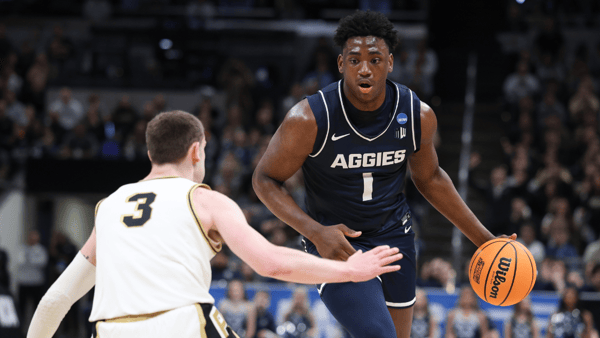
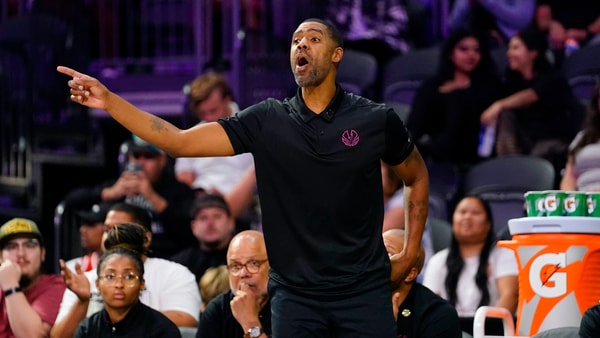

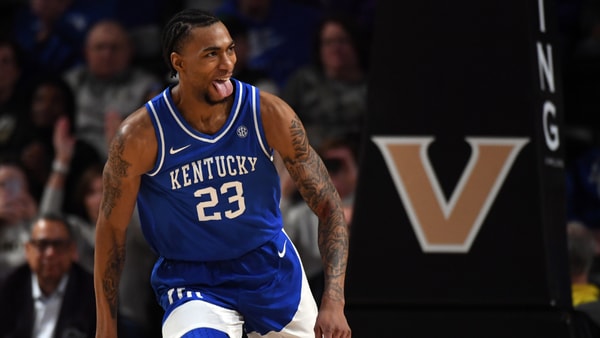
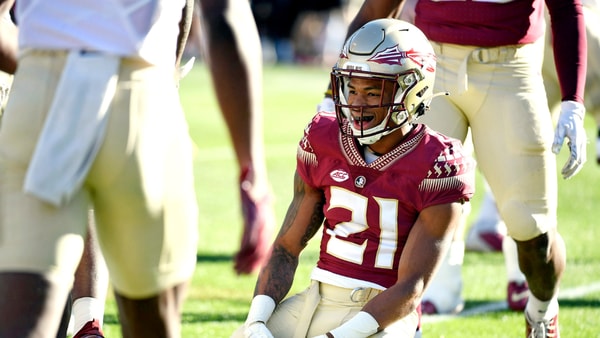
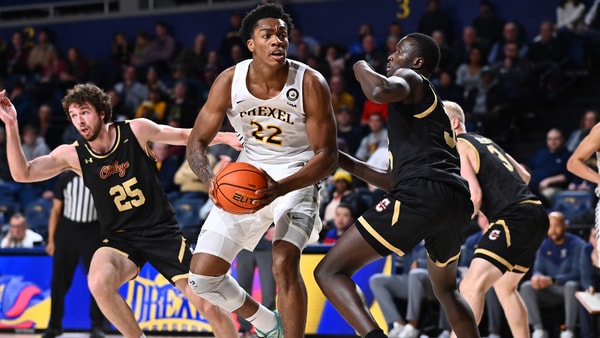
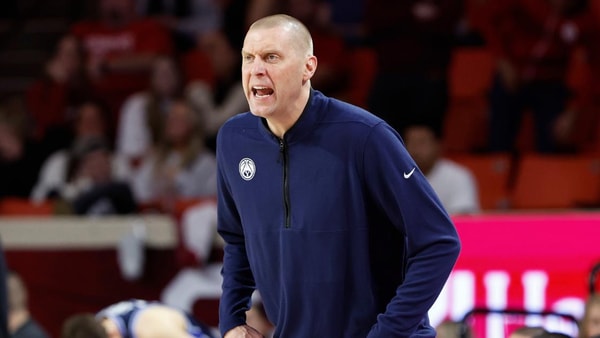
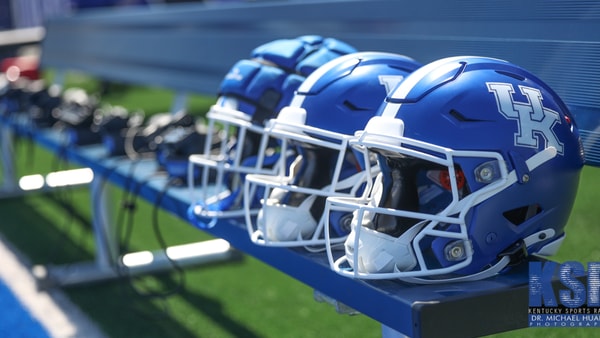
Discuss This Article
Comments have moved.
Join the conversation and talk about this article and all things Kentucky Sports in the new KSR Message Board.
KSBoard